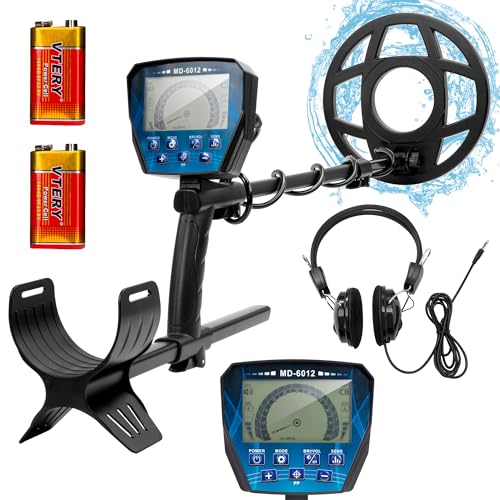
Have you ever wanted to take your metal detector and go metal detecting for gold in creeks?? It might sound like a crazy idea, but it is actually quite common. Gold hunting and metal detecting are popular hobbies that many people enjoy.
However, finding the right place to start can be hard. This blog post will answer some of your questions about where to start looking for gold nuggets in creeks!
Can You Metal Detect In Creeks?
Yes, you can go gold hunting in creeks. The best place to start is by asking around your local area for any stories of someone finding gold nuggets in a creek. See if anyone has an old map with any possible locations marked on it that they could share as well!
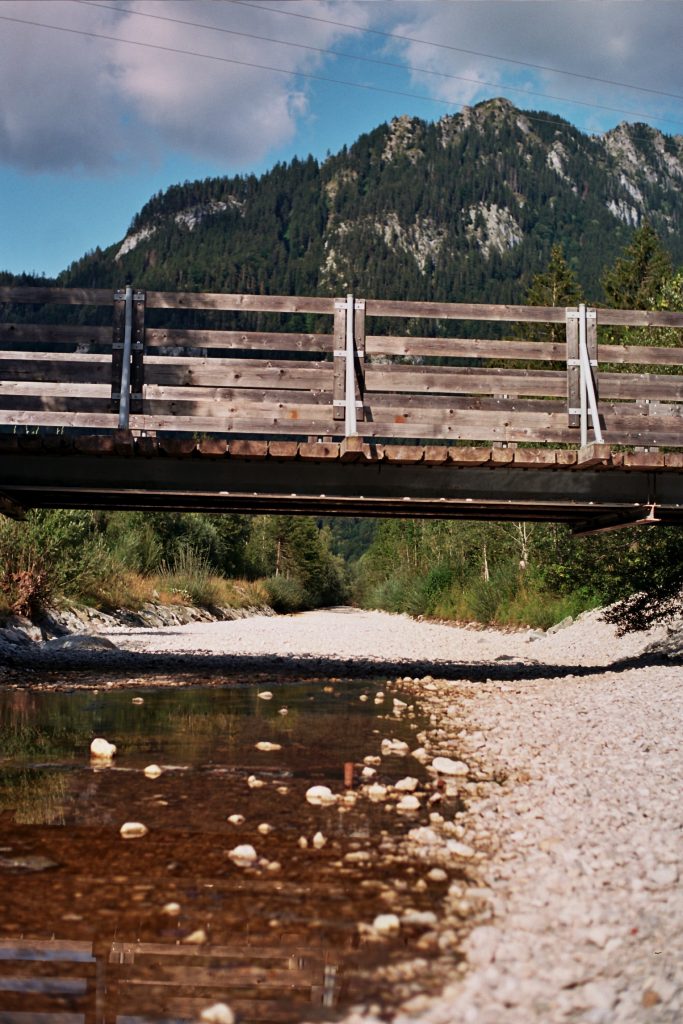
It is also helpful to use google maps and type the word “gold hunting” or “gold prospecting” into the search bar when looking for new places near you.
Sometimes people will leave information about their finds at these sites or even pictures of what they found there.
Always remember to ask permission before going onto private property without permission (or land with no trespassing signs)!
And always remember to check all areas nearby first – sometimes people might have already been out there and covered up any evidence of their gold prospecting adventures.
How Do You Find Gold In A Creek?
Although it is advisable to have a detector that is specifically designed for detecting gold in creeks and rivers, you don’t require elaborate tools when starting out.
But it is important that your detector has presets built into it so that any settings can be used when you might come across different metals or minerals while working on a particular project.
You will need patience, persistence, and knowledge of where streams flow from. If all else fails – try asking friends who do this type of searching because they tend to have the experience needed to give you the best advice.
Do Most Creeks Contain Gold?
No, it is not common for most creeks to contain gold.
Some people have found small specks of gold and other valuable metals while detecting in creeks but they are the exception rather than the rule.
The type of metal detectors used by professionals who specialize in this field often cost upwards of several thousand dollars so read up on all types before making any purchase decisions because there may be one better suited for your needs even if it’s more expensive than others available at a given time or place.
One of the most popular and affordable types is designed specifically for use in water but they are not waterproof (submersible) so take care if operating them around deep or fast-flowing waters.
Where Is The Best Place To Metal Detect For Gold?
Gold is typically found in creeks and rivers. Places that water has been for a long time and it’s not uncommon to find old mining sites where gold was previously mined from or seeking spots where there might be recent activity by prospectors who are looking for more caches of the precious metal.
Keep an eye on any historical societies or museums since they often have information about these types of things!
You will want a detector that is designed specifically for use in water, preferably a submersible because some detectors don’t function properly when wet so if you operate them around deep or fast-flowing waters take care.
Check out some historical documents on mining that happened in that area, as this could be an indicator that gold will be present.
If you find something promising but it turns out not to be gold beware – some rocks and minerals such as pyrite can fool prospectors into thinking they’re hitting pay dirt!
Is It Legal To Metal Detect In Rivers?
The big question is the legality of detecting in rivers and creeks.
The simple answer is that it’s entirely illegal to detect in any kind of waterway without permission from the landowner.
In some cases, you might be able to get access by applying for a permit through local law enforcement agencies or other city government offices – but this is not an easy process and can take time. Patience will be required if you want to do your detecting legally!
Local detecting clubs and societies can be invaluable here. It is worth doing a little research and reaching out to these people as they can often provide information on the legality of detecting in a given area (and will be more than happy to show you around once they know that permission has been granted).
The other option would be to find out if any friends or family own land near water sources – this could mean creeks, rivers, even small lakes, and ponds. You may need to buy them something as compensation but it’s worth investigating if your prospecting ambitions are real.
Is Black Sand A Sign Of Gold?
Black sand is a sign of gold on the beaches. When rivers run into oceans, there are often black sands deposited by these waters.
This means that if you notice an abundance of sand in your area and are also close to water sources (rivers or creeks), it might be worth investing time searching – just make sure to get permission!
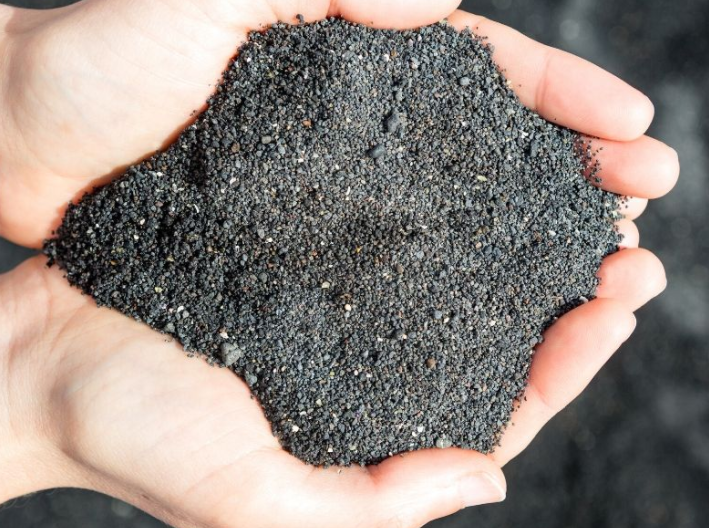
In the creeks, you’ll find black sand in areas where water flow has been depositing for a long time. The more silt there is at these sites, the better your chance of finding gold as it will have collected on top of this sediment over time.
It’s fairly easy to test with a metal detector – just use low sensitivity settings and scan slowly through any suspected spots!
Where Do You Find Nuggets In A Dry Creek Bed?

Gold can be found in dry creek beds when the river flow has been gone for a long time. The more silt there is at these sites, the better your chance of finding gold with your metal detector, as it will have collected on top of this sediment over time.
What River Has The Most Gold?
What river or creek would contain the most gold? This really depends on the river/creek. Some are richer with gold deposits than others so it’s hard to say which would contain the most.
The ideal situation is if there has been a lot of dredging done upstream from where you’re searching but this isn’t always possible.
Again your research which you carry out before will be helpful here. Areas that had mining in the past or have had gold discovered in the recent past before will be prime areas to search.
If you’re looking to go hunting gold nuggets, areas of mining or recent discovery of minerals would be your best bet for finding gold deposits which makes them good choices when deciding on where to go hunting!
The best advice I have here is patience: don’t give up just because you haven’t found anything after an hour – this takes time and persistence.
Once you’ve established some ground rules for yourself then you just need to have a little patience and some luck!
Start by going to known areas of gold deposits, this is an obvious choice but for many people, it’s the most fruitful too. Things like old mine shafts or sites where miners have been working are good areas to start metal detecting for gold.
Look here first before anywhere else because you’ll be sure that there will be something there – if not today then tomorrow or next week so keep coming back until you find what you want!
Where Do You Find Gold In Rivers?
When searching for gold in rivers you need to be looking for areas where gold is eroded out of creeks and rivers. This happens when there are strong currents, a lot of water erosion, or other natural erosion that causes an increased flow in the river.
Gold has been found deep inside canyons; however, you’ll most likely find it closer to the surface as this is how nature tries to reclaim its lost treasure!
Often people will want to search near bends in the rivers because they believe these make good spots as the gold is deposited as a sudden drop in the rivers flow – but don’t be afraid to go off track if something catches your eye!
Can Cheap Metal Detectors Find Gold?
Do you need to spend a lot of money on a gold detecting machine, or can the cheaper end of the market detect gold as well?
In general, when shopping for a metal detector that detects gold there are four things you should keep an eye out for: sensitivity, depth, discrimination and waterproofness (is that a word?).
Sensitivity refers to how well a metal detector responds when close by metals are located- some models get overloaded with interference from minerals such as iron while others excel at picking out even the slightest of signals.
Depth refers to how deep beneath the ground a metal detector is able to detect metals- some models are only capable of detecting objects up to five inches below the surface while others can go much deeper.
Discrimination is an important feature for hunters looking for gold because it means that if you set specific tones and frequencies into your machine then when it picks up these signals it will be ignored by the discrimination system in favor of other possible targets such as silver coins and relics.
And finally, waterproofing, since we know that people love taking their detectors onto watery areas like creeks! At the very least make sure that the coil is waterproof, and bear in mind that when detecting in creeks and shallow rivers, it is easy to slip or trip on a boulder, so ideally the whole unit would be waterproof.
If you’re new to this hobby then I highly recommend buying a beginner’s model which has all four features and maybe after you dig up that huge nugget you can upgrade then!
Where Is The Easiest Place To Find Gold?
Gold is typically found in creeks, rivers, and streams. But to answer that question realistically, there is no easy way to find gold on a regular basis.
The best way is to go to a place that has historical records of gold mining – the North American gold rush for example, or even an old mine in your area. Or you could have someone show you where they found something before and then try those spots out yourself!
You can make the task easier by getting your hands on a metal detector that has been specifically designed to detect gold.
What Do Metal Detectors Look For In Gold?
So what exactly in gold sets off the metal detector? It turns out that gold is a non-ferrous material, meaning it doesn’t contain iron. Gold’s density (weight per volume) makes it heavier than other metals like copper.
This means even when you’re using the best metal detector to find gold in water or dirt, you have to know what your target looks like!
Can I Keep The Gold I Find?
So you’ve found the gold in that creek but can you keep it?
You may be surprised to learn that if you found the gold on public property in America, it’s yours. However, private land is a different story and varies by state. This is why you should always ask permission before searching for gold!
It is always a hot topic among detectorists as to who owns the finds from rivers, creeks, or mines. Finding a nugget on private property might be considered to belong to the owner of that land, while finds in waterways may belong to all citizens (public domain).
If possible draft up a contract when you get permission to decide how any finds should be split.
What Is The Black Stuff On Gold Nuggets?
The black stuff is usually some form of oxidation that has formed on the surface. It can be removed with a little detergent and water, but this will leave an ugly spot which may make it less attractive to buyers.
Sometimes these spots are so bad they even have to sand off the oxidized area and re-polish the nugget to get rid of all traces.
How Do You Sell Gold Flakes?
What do you do when you find gold flakes? How do you go about selling them?
The value will depend on the purity of the metal, which in turn depends on what was used to process it and whether or not other metals are mixed into the alloy.
It might be a good idea to consult with an appraiser for more information.
If you want your flakes melted down then contact one of many jewelers who do this kind of thing professionally.
How Can You Tell The Difference Between Pyrite And Gold?
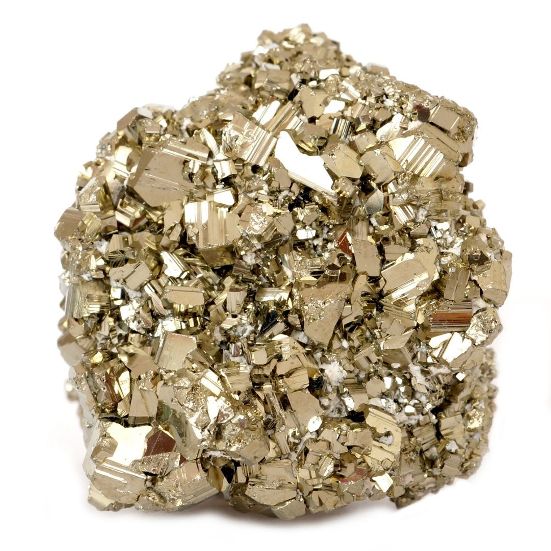
The first way to tell if something is gold or pyrite is the color. Pyrite has a metallic shine and can be yellow, pale orange, brass-yellow, reddish-brown, or almost black. Gold looks like it’s made of mercury.
Another way to tell the difference is you can use a simple magnet. If the item is attracted by a magnet, it’s pyrite. Otherwise, it’s gold!
What Is The Best Frequency For Detecting Gold?
You may have heard that the best frequency for detecting gold is 14 kHz+, but this isn’t always true. Gold can be detected at frequencies as low as 5 kHz and up to 50 kHz.
What matters most is what type of metal detector you are using and how it operates. Different metals react differently to different frequencies, which means that some detectors will work better than others depending on where you are hunting in the world.
The truth is, there really isn’t a “best” or even an “exact” answer to this question because it’s all about what kind of ground your hunting in and what type of targets you are looking for.
For example, if hunting in salt water, the best frequency maybe 6 kHz because lower frequencies don’t work well in salty environments (although they are great for finding gold!) If your hunting on dry land with lots of iron objects around like old nails, then higher frequencies will do better than lower ones.
If you’re looking for a good gold detector make sure you buy one which is specifically designed for the task as it may be worth the extra cost.
What State In The USA Has The Most Gold?
Wondering which state has the most gold? Well, wonder no more! Here are the top 5 states to take your metal detector too!
The top 5 are:
1) California
2) Nevada
3) Alaska
4) Arizona
5) Colorado
It can be tough to find the best place in the USA to go metal detecting for gold. If you’re looking for a state where there are tons of it, then you should look into going to California. There is more gold in this state than anywhere else in America and it’s also home to some really great beaches too!
Can All Metal Detectors Detect Gold?
Metal detectors vary in what metals they can detect and some of them are better at detecting gold than others. It’s important to know which are the best metal detectors for the task so that it will be easier to find more gold! If you’re looking for a good machine for this type of thing then I recommend these models HERE!
The main question people ask when they want to start hunting around creeks is if all metal detectors are capable of locating gold. There isn’t just one answer- it depends on the individual design of each specific model, but many models do have features like high sensitivity or deep detection capability that make them ideal candidates.
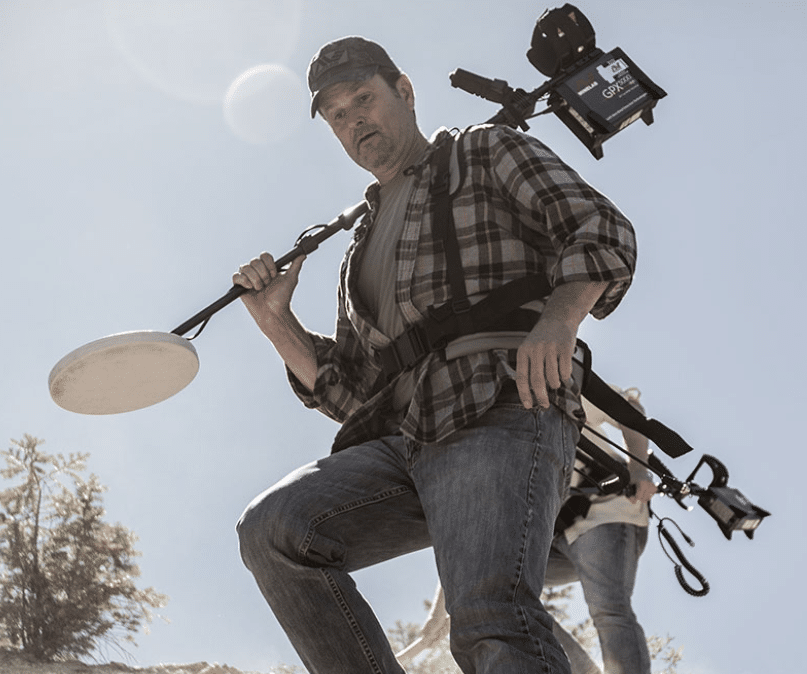
The key to success is patience. You need the right equipment, and you’ll have to do a lot of work in order to find any gold. For those reasons, most people who go looking for gold are not successful when they first try it out.
Conclusion
Metal detecting in creeks can be a great way to find gold. However, you need to know your limits and understand that not all creeks contain gold. If there are bedrock cracks on the bottom of the creek then it’s likely that there will be some gold in the area – but this isn’t always true!
Doing research online is a good idea if you are in an unfamiliar location. It might turn out that someone else has already found what they’re looking for and doesn’t mind sharing their knowledge with others!
One of the best places to look for gold in creeks is where the water slows down or pools up. Gold tends to be heavier than other metals like aluminum, so when it settles out of moving water, that will be an ideal spot. If this doesn’t work, keep on looking!









